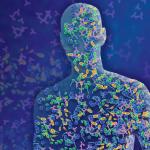In the last few weeks, Stat posted its most recent article on their continuing investigation of United Healthcare,
Disease
Join Cameron English and Dr. Chuck Dinerstein on Episode 87 of the Science Dispatch podcast as they discuss:
Aging is a complex process involving many variables interacting in linear and nonlinear ways closely linked with nearly all diseases. Understanding aging’s molecular changes is critical to increasing the health span.
Join Cameron English and Dr. Chuck Dinerstein on Episode 86 of the Science Dispatch podcast as they discuss:
When I first wrote Antibiotics – The Perfect Storm (2009-10), I described the various factors that went contributed to the conundrum that still confronts us today.
Why is it that the results of well-controlled studies often, if not always, find them difficult to replicate in the real world? That loss of efficacy is termed the voltage effect, as described by John List.
We began with President Biden, whose COVID infection, while mild, is concerning because of his vulnerability to serious complications because of his age and frailty, including possible dementia or a variant of Parkinson's disease.
As the nation celebrated its bicentennial, news organizations flocked to Philadelphia after a mysterious outbreak occurred in a Philadelphia hotel where members of the Pennsylvania State American Legion were staying.
There is little doubt at this point that the COVID vaccines were oversold. While they reduce the severity of the illness, they do not prevent infections nearly as effectively.











